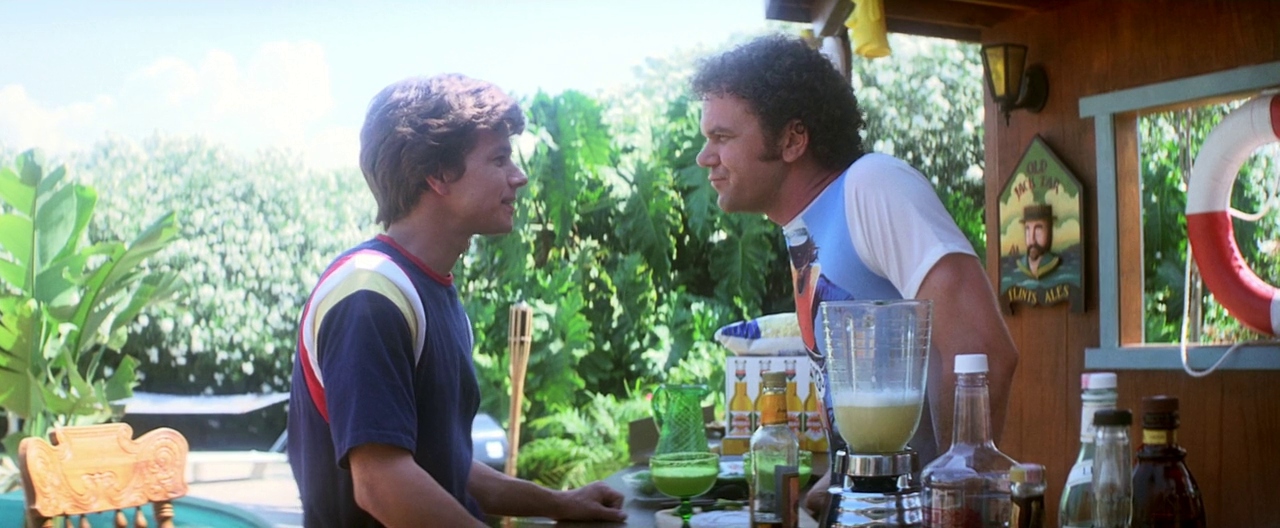
In light of the recent passing of Brian Wilson, Los Angeles-based writer Hannah Benson explores the cinematic legacy of The Beach Boys whose melodious sounds translated onto films such as Hal Ashby’s Shampoo, Paul Thomas Anderson’s Boogie Nights. And Love, Actually.
Thanks to Brian Wilson, the movies have moments of solace.
On June 11, Brian Wilson, the leader, predominant songwriter and musician for The Beach Boys passed away at the age of 82. His lyricism, vocals, bass guitar and keyboard skills gave us that distinct California sound, one he defined with original band members: his brothers Dennis and Carl Wilson, their cousin Mike Love, and friend Al Jardine. Their fusion of rock, pop and something else entirely–a euphony of sunshine–went on to inspire many other artists, from The Beatles on their album Sgt. Pepper’s Lonely Hearts Club Band to Clairo’s whimsical outing Charm.
The film world has also been inspired. Ever since their 1962 debut ‘Surfin’, music supervisors, editors, directors, and producers have turned to The Beach Boys, making the most of their lucid, trippy sound to transcend genre, mark beginnings and finalities, both diegetically and non-diegetically.
Hal Ashby’s Shampoo (1975) bookends its 24-hour storyline with ‘Wouldn’t It Be Nice.’ As the opening credits roll, the song’s innocent sentiments contrast with sounds of sexual ecstasy. George Roundy, played by Warren Beatty, the satirical film’s star and co-writer, is only a man of action when it comes to a woman’s bed. The film’s a romp, just like Roundy’s life, despite the uneasy historical backdrop—the election that won Richard Nixon the presidency.
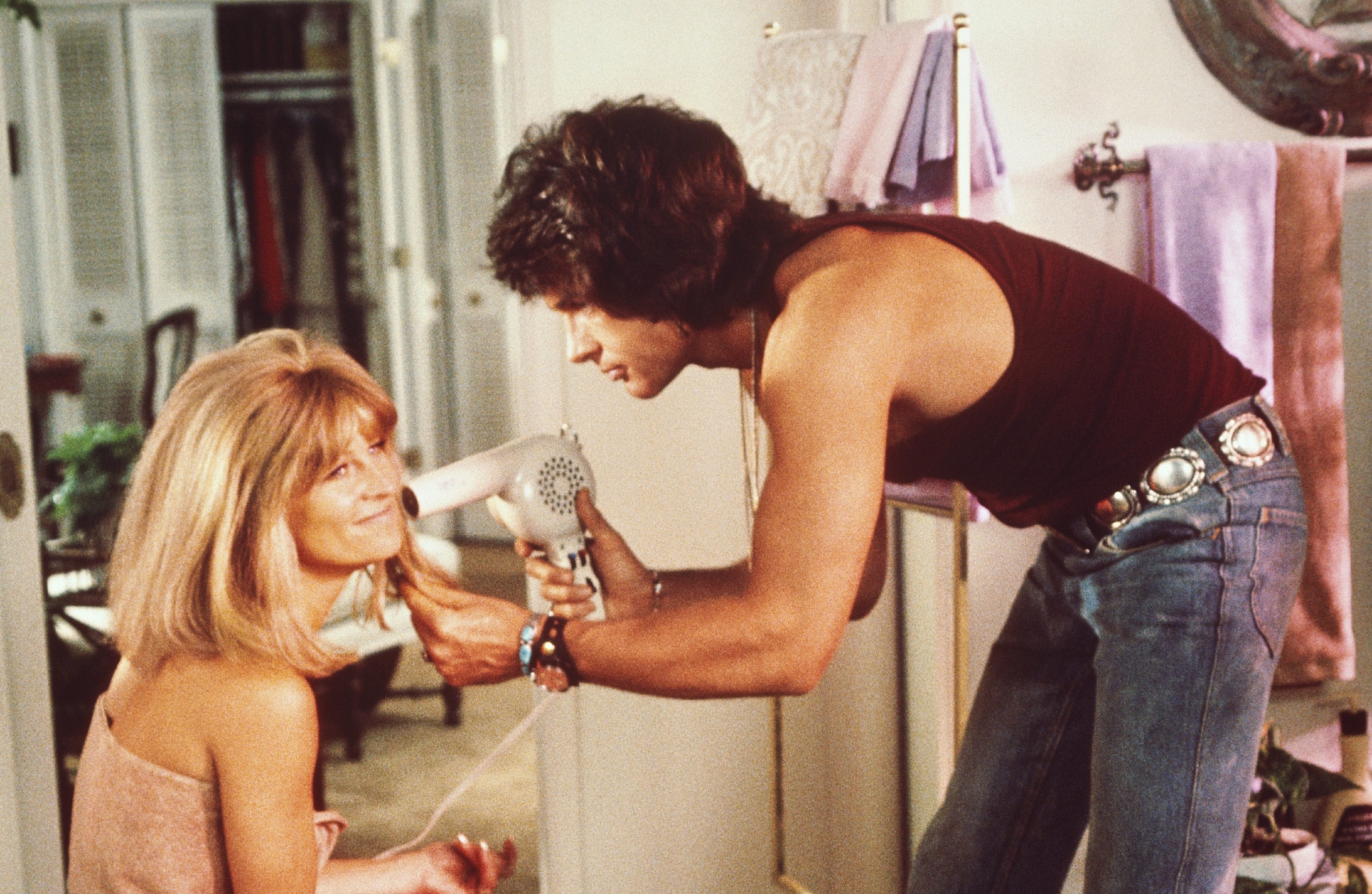
Hal Ashby’s Shampoo (1975)
‘Wouldn’t It Be Nice’ channels a longing for romantic freedom, a liberation Roundy oversteps. He can’t seem to accept the repercussions of his empty promises until he stands alone, the haze of Los Angeles before him, the women moved on. The end credits roll and ‘Wouldn’t It Be Nice’ returns. Finally, Roundy grasps pure wanting and the audience can pause with him. We hope he grows because, “wouldn’t it be nice” if men could be better?
The 1966 album Pet Sounds sets the tone that the romantic-comedy canon thrives upon. The song was also utilised by the feel-good writer-director herself, Nancy Meyers, in her romantic-comedy It’s Complicated (2009). After the two lead characters, divorced for decades, find comfort in another once again, they dance to “And after having spent the day together / Hold each other close the whole night through”.
‘Wouldn’t It Be Nice’ asks a question so steeped in nostalgia that it makes any listener capable of yearning for that person they loved when they were young, making them young once more, at least for a song.
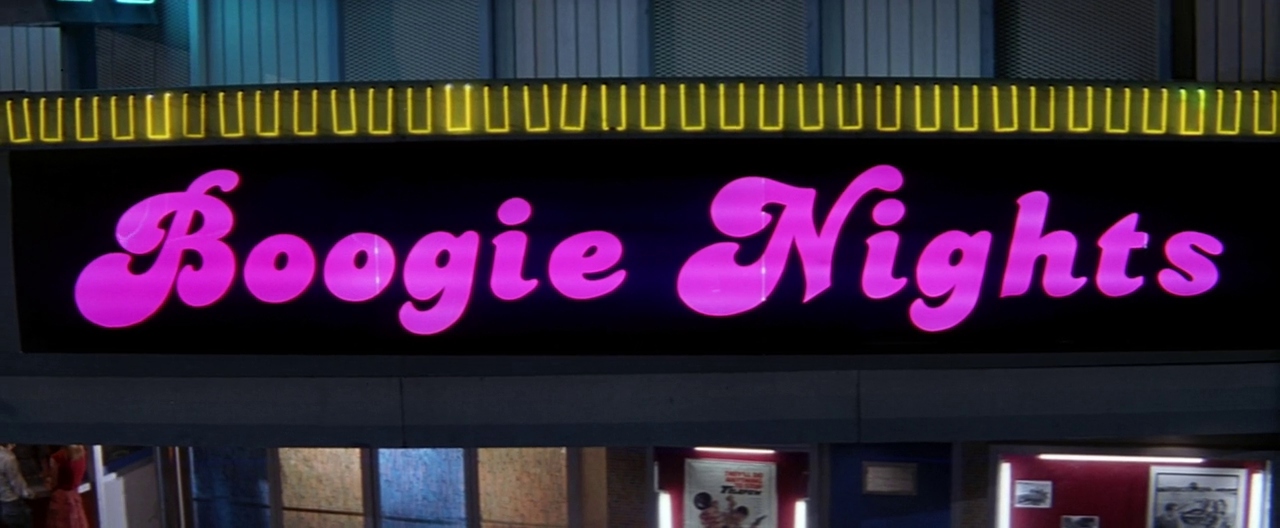
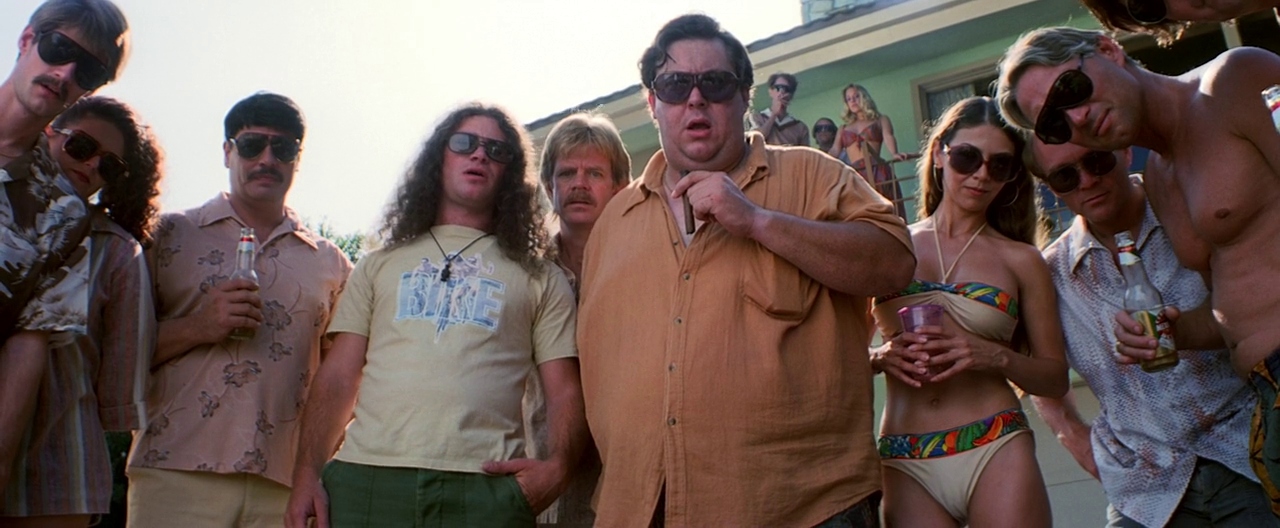

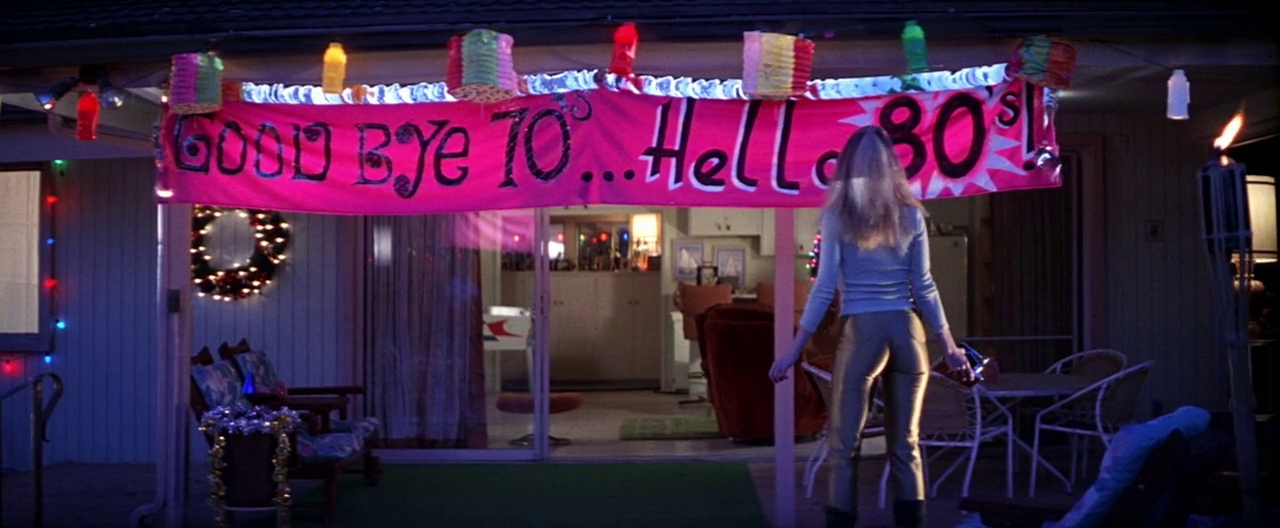
Now, flip to Side B of Pet Sounds. Love it or loathe it, Richard Curtis’s Love Actually (2003) concluding with ‘God Only Knows’ is a deft choice. The chaos of interwoven narratives gets a slight tonal shift of cohesion, definitely teetering on Christmas advert, as all the characters gather at Heathrow Airport arrivals. And it’s charming.
Less wholesome, just as sentimental, Paul Thomas Anderson’s Boogie Nights (1997) incorporates ‘God Only Knows’ quite similarly as a means to wrap up the stories of its large cast. The porn stars of Los Angeles’s San Fernando Valley are transitioning to parenthood, management, education and beyond—but they still care for each other. Anderson’s character study of adult film stars navigating the changing times is more effective through the use of ‘God Only Knows’. The song’s sweetness captures both love, friendship, a nostalgia for what was and a hope for what can be.
Wilson’s vision and execution for harmony and playfulness brought respite to countless films. ‘Don’t Worry Baby’ for Déjà Vu (2006), ‘Surfin’ Safari’ and ‘All Summer Long’ for American Graffiti (1973), ‘Heroes and Villains’ for Fantastic Mr. Fox (2009) and ‘Sail On, Sailor’ for The Departed (2006).
Hannah Benson
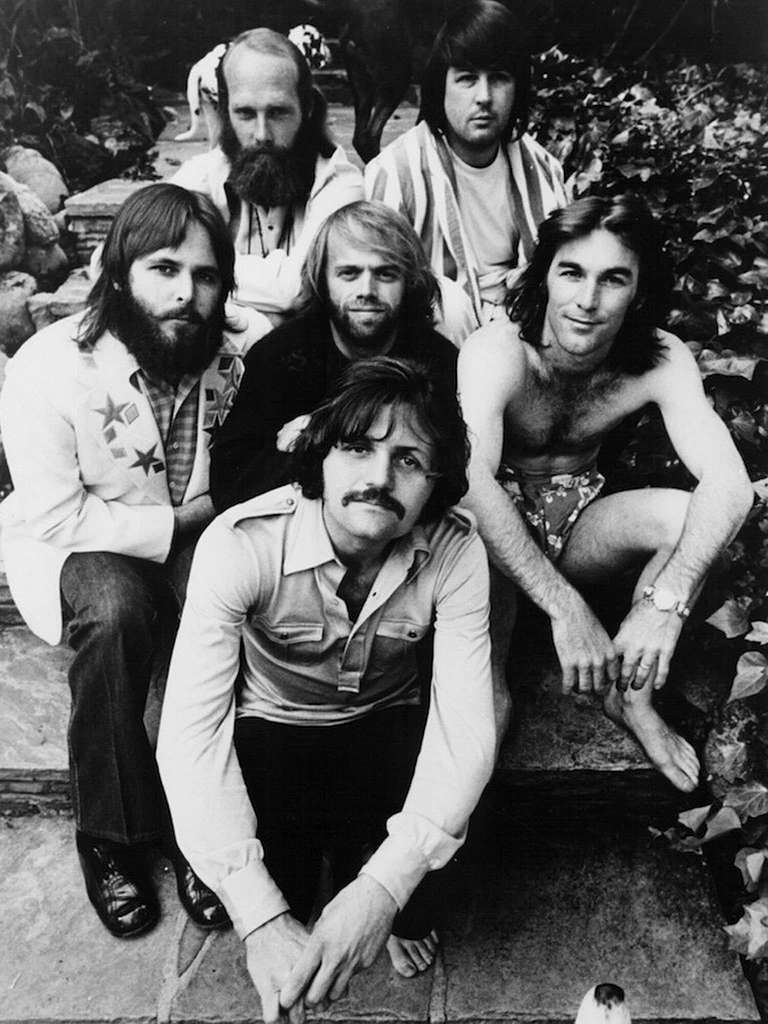
The Beach Boys in 1971.
Cameron Crowe’s ode to his music journalism career, Almost Famous (2000) puts the entirety of Pet Sounds on full display as the main character discovers the beauty of his new vinyl collection gifted by his sister who whispers, “It’ll set you free.” And there it is: a close-up of Pet Sounds.
Wilson’s vision and execution for harmony and playfulness brought respite to countless films. ‘Don’t Worry Baby’ for Déjà Vu (2006), ‘Surfin’ Safari’ and ‘All Summer Long’ for American Graffiti (1973), ‘Heroes and Villains’ for Fantastic Mr. Fox (2009) and ‘Sail On, Sailor’ for The Departed (2006).
The man was no surfer, despite the band’s name and recurrent ocean themes interspersed throughout every album, but he was a true Southern Californian. Wilson was born and raised in two southeast Los Angeles neighbourhoods, Inglewood and Hawthorne respectively, and he would go on to live in the Hollywood Hills in a home that famously housed a piano atop an indoor sandbox to maximize inspiration. Notably, these pivotal areas of Wilson’s life are located inland.
One doesn’t need the squawks of seagulls nor spray of saltwater to imagine California, you just need to be Brian Wilson or listen to The Beach Boys. And what is a California identity if it’s not one of idealism? It’s where dreams are taken seriously. Amusement parks are built to last. Permits for “new concept” restaurants are drawn up regularly. Hollywood is a business. The residents rally swiftly when their own are threatened by the government.
Wilson left this world at the top of summer as people try to define what Southern California is, despite their very horrific actions countering its essence: a place for all to pursue a peace of mind. Connecting to The Beach Boys is an inclusive experience because of California.
And just like the movies, we are dancing or trying or kissing or contemplating or at home on the floor with vinyl stacks before us. A trip to grab toothpaste, looming deadlines and hard conversations can wait. Let’s just listen to The Beach Boys and have this moment. Don’t worry baby.





